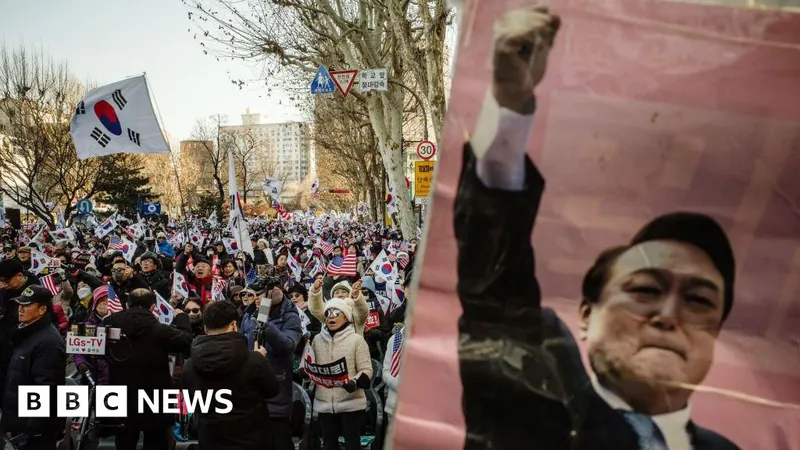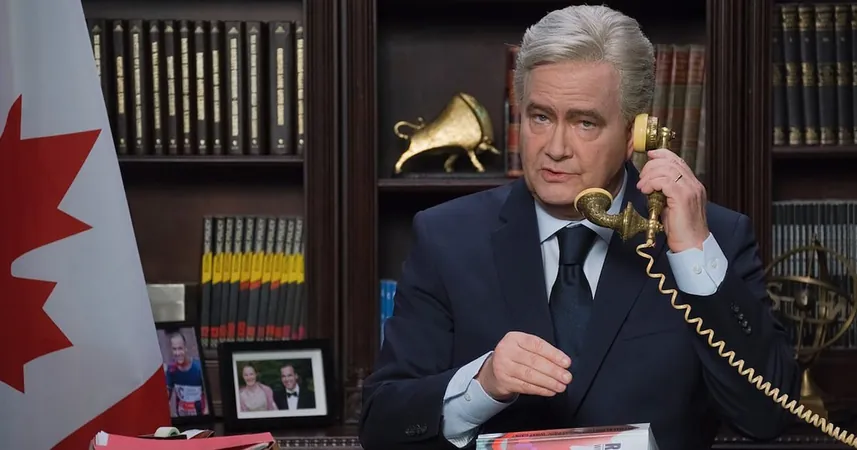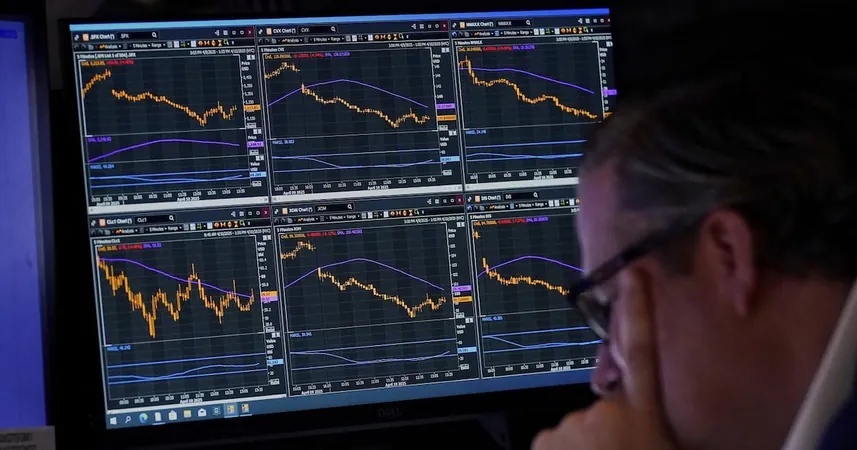
The Fall of Yoon Suk Yeol: How the Impeachment of South Korea’s President Ignited Conservative Resurgence
2025-04-04
Author: Jacques
In a dramatic turn of events, former South Korean President Yoon Suk Yeol's impeachment has divided the nation and given rise to a fervent conservative movement. Following the Constitutional Court's confirmation of Yoon's impeachment, thousands rallied outside his official residence, echoing sentiments of betrayal and injustice. "I came here with hope in my heart, believing we would win ... It's so unfair," lamented one supporter, exemplifying the emotional turmoil among Yoon's loyal base.
Since Yoon's controversial declaration of martial law last December, which lost him significant public confidence, his supporters have transformed his misfortune into a narrative of a wronged leader battling against a corrupt political system. This phenomenon has seen the emergence of a fringe movement that draws inspiration from right-wing YouTubers, who claim that Yoon's actions were essential to protect South Korea from alleged pro-North Korean elements within the opposition.
Pro-Yoon rallies have increasingly mirrored tactics seen in U.S. politics, with slogans like "Stop the Steal" appearing at demonstrations, reminiscent of the rhetoric used by supporters of former President Donald Trump. The unrest escalated dramatically in January when Yoon's supporters stormed a courthouse, armed and defiant as they protested against his potential arrest.
The public’s distress was further highlighted by tragic incidents, such as the self-immolation of an elderly protester, who left behind flyers alleging treason by opposition leaders. These chilling acts underscore the emotional stakes involved in the current political landscape, characterized by a growing sense of urgency among Yoon's supporters, who fear losing their country to communism.
Even within conservative circles, this trend towards aggression has sparked concern. While some conservative media outlets express skepticism about the extreme endorsement of Yoon by his followers, others have been quick to embrace him as a martyr fighting for the nation's future. "He has watched too many trashy YouTube videos," remarked a critic in a prominent conservative journal, illustrating the fracture within the conservative establishment regarding Yoon's legacy.
Yoon's strategic engagement with YouTube influencers during his presidency has only intensified this connection. He has encouraged supporters to consume curated "well-organized information" from these platforms, positioning them as alternatives to what he termed "biased" mainstream media. This dependence on alternative narratives has fostered a pervasive distrust of established media, pushing the discourse further into a realm of conspiracy theories surrounding election integrity and outside interference.
Many young conservatives are stepping into the limelight, amplifying their voices through social media channels. Influencers like Jun Kwang-hoon and platforms such as Young Perspective are reshaping the landscape, giving new life to right-wing ideals and invigorating younger demographics typically disengaged from traditional conservatism.
Following Yoon's impeachment, his political party, the People Power Party (PPP), surprisingly saw a resurgence in popularity, with approval ratings bouncing back from a low of 26.2% to above 40%. As Yoon embraces the role of a martyr, claiming his impeachment has solidified his identity as a true leader, disillusioned party members find themselves caught between loyalty to a polarizing figure and the need for party unity.
The dynamics within the PPP are increasingly complex, with some members openly opposing Yoon's leadership while others cling to the fervor surrounding him. A notable tension exists as lawmakers criticize the near-cult-like devotion emerging around Yoon, questioning the rationality of such unwavering support.
As political tensions escalate, fears loom over the potential radicalization of both the right and left in South Korea. Political analyst Christopher Jumin Lee warns that the current state of affairs not only marks a deepening divide but also complicates any future compromise among political factions. "Yoon has effectively executed a decade's worth of polarization," he asserts, hinting at a bleak outlook for South Korea's political future.
In summary, the fallout from Yoon Suk Yeol's impeachment has catalyzed a surge in conservative mobilization while deepening divisions throughout the country. As these movements gather momentum, the prospect of achieving political consensus appears increasingly remote. Will South Korea emerge from this turmoil united, or will it continue to spiral into further polarization? The coming months will be crucial as the nation navigates these stormy waters.









 Brasil (PT)
Brasil (PT)
 Canada (EN)
Canada (EN)
 Chile (ES)
Chile (ES)
 Česko (CS)
Česko (CS)
 대한민국 (KO)
대한민국 (KO)
 España (ES)
España (ES)
 France (FR)
France (FR)
 Hong Kong (EN)
Hong Kong (EN)
 Italia (IT)
Italia (IT)
 日本 (JA)
日本 (JA)
 Magyarország (HU)
Magyarország (HU)
 Norge (NO)
Norge (NO)
 Polska (PL)
Polska (PL)
 Schweiz (DE)
Schweiz (DE)
 Singapore (EN)
Singapore (EN)
 Sverige (SV)
Sverige (SV)
 Suomi (FI)
Suomi (FI)
 Türkiye (TR)
Türkiye (TR)
 الإمارات العربية المتحدة (AR)
الإمارات العربية المتحدة (AR)